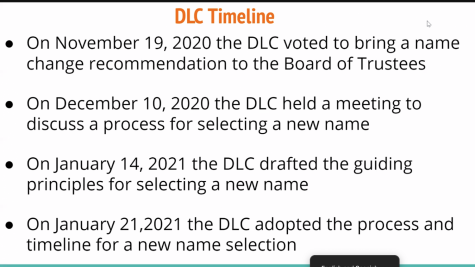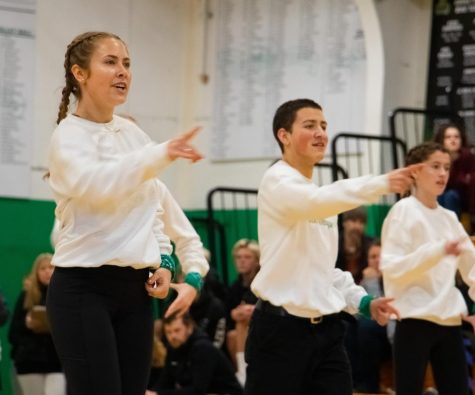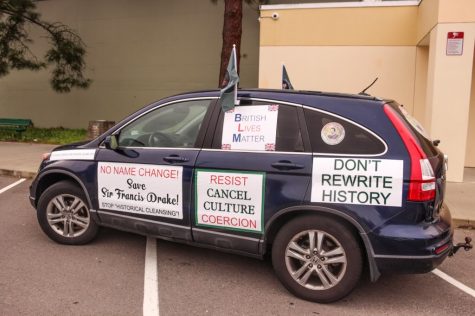New form of discrimination becomes prevalent in society
“You’re too young for this.”
“Shouldn’t you be retired?”
“Young people are lazy.”
“You’re probably too old to understand this.”
These are ageist remarks that can have far-reaching effects on the mental and emotional health of others. This form of discrimination, known as ageism, affects the lives of many generations.
According to the World Health Organization, ageism is the “stereotyping, prejudice, and discrimination against people on the basis of their age.” While multifaceted, this issue primarily affects younger and older generations.
“Ageism is the assumption that the amount of years you have in your life determines your knowledge and not the experiences that you’ve had in your life,” senior Téa Kaiser said.
Examples of ageism are called out more frequently as the younger generations are more politically vocal. Many protests have been almost completely run by this generation, such as the gun control movement, and more recently, the climate strikes.
“Especially with the climate strikes it’s been the younger generation expressing our opinion and being ignored, however, I think the general impact is positive because it’s motivating young people to take action rather than just stating ways they think should be done,” Kaiser said.
Another large part of ageism towards the younger generation is the expectation that if a person is younger, they can do work for free, often through unpaid internships. As explained in the Youth Intervention Programs Association, this frequently occurs even if the work is the same exact work as older adults. However, a law that protects unpaid interns from doing the same job as adults is the Fair Labor Standards Act. The law provides regulations for interns to make sure that an unpaid intern does not regularly perform the company’s routine work, nor is the business dependent upon that individual’s work product.
“It should rather be that the experiences determine your knowledge because someone who’s sat at a desk for 50 years doesn’t know as much about the world as someone who’s lived 30 years and has done a lot of work in a ton of different countries,” Kaiser said.
Ageism can be targeted towards the older generation as well. According to Science Daily, society has become increasingly youth-oriented. The media looks down upon and often does not represent people once they reach a certain age, leaving them to be refused jobs due to their age.
As explained in Senior Planning Services (SPS), “seventy percent of older Americans said they had been insulted or mistreated because of their age.” SPS states that this can even lead to severe mental health problems due to this generation feeling unimportant.
However, some would not compare ageism to other forms of discrimination.
“Racism and sexism is a totally different discrimination that can cause you to not get the same job or the same access as people from a different race of gender […] many elderly people still [have] jobs, which to me is something you should treasure as long as the unusual suspects [young, black, woman] are not losing out,” said local film producer Bous De Jong. He believes that even with old age people still have equal opportunities.
Currently, ageism appears in the news more often due to the political candidates of a range of ages.
“I think that old politicians should support fresh young candidates instead of becoming president when they are over 70 yours old. I accept that you are in your prime years between 30 and 60 so I would encourage [people] to select younger candidates for president of the United States. Somebody that works hard, is honest and listens to the best experts to keep us all safe and finds solutions for the very complex issues we are facing in our global society today,” De Jong said.
Another way that ageism has become more relevant today is through the “OK Boomer movement.” The phrase “OK Boomer” is used by some of the younger generation as a pejorative response to dismiss or make fun of outdated attitudes of older persons, especially Baby Boomers. However, some adults take offense to this because it diminishes their opinion and perceived role in society.
“Awareness is an important step as well as communicating the value of contributions made by older workers,” said Rod Miles, an active member of the San Anselmo community. “There needs to be encouragement to recognize the unique gifts that different individuals bring to the table.”
Your donation will support the student journalists of Archie Williams High School. Your contribution will allow us to purchase equipment and cover our annual website hosting costs. Each donation will receive a magazine subscription for a year (6 copies a year), and become a part of the important work our publication is doing.
$35 -- Subscription to the magazine
$50 -- Silver Sponsorship
$75 -- Gold Sponsorship
$100 -- Platinum Sponsorship











